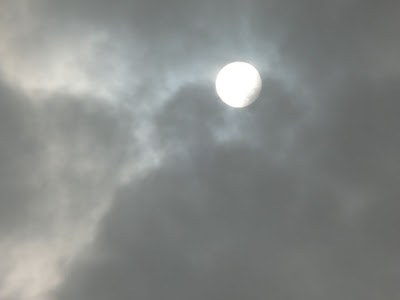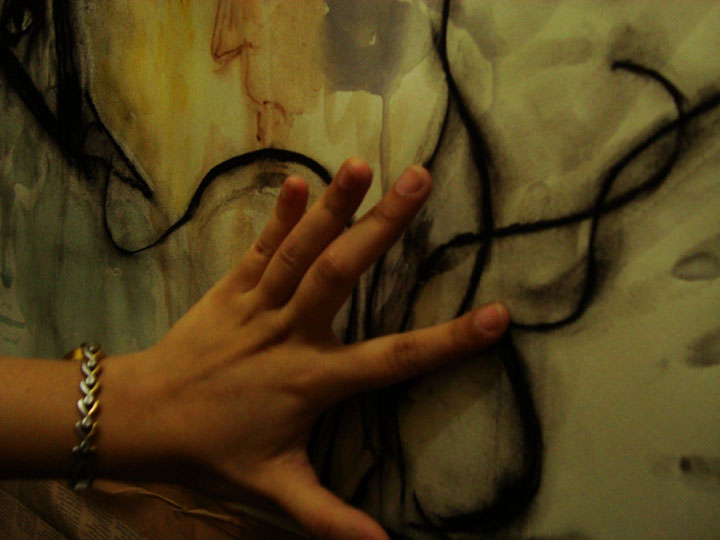
Blind Mrs. Mitra sat by the iron-barred window and listened to the rain. Drip, drip, it went, on the brick tiles of the roof and splash, against the aluminium frame of the window, newly installed, because the wood, a hundred years old, had been eaten away by time. She could feel the city outside – the air felt grainy, like the air in front of the grinding mills at home, a long time ago – but colder, and harsher.
The sound of the city was lulled by the rain – and the metal sounds of Pratima, her daughter-in-law, washing the dishes in the little kitchen next door. The sound of the dishes reminded her of her knitting – she felt the cold steel of the needles in her palm and sighed. Clickety-clack, they would go – with the rain – but she felt like remembering, now.
Ajay had presented her the knitting needles – Ajay, her brother’s son, orphaned as a child of four months. The same day, it was, that Ajay and Prashant, her own son, had graduated from the military academy together – two smiles, so similar, so indistinguishable – she had felt them with her old wrinkled fingers on their lips, a foot above her head. Prashant had gifted her the aluminium window frames. Pratima had laughed, but she hadn’t found it funny – cold, instead, as if Prashant didn’t know how to love.
Splash – and thump – boots in the street. Then footsteps came loudly, and slowly, up the stairs and stopped in front of the door. Mrs. Mitra turned her head towards the doorway – it was open, she knew – it was always open. She wondered who it was – those boots were heavy on the red-cemented floor – a raincoat? Or was it a jacket?
“Pratima!” she called. “Look and see – someone is here. See what they want!”
There was a clash of metal, again, from the kitchen.
“Ask them, Ma – I’ll be a minute.”
The boot stepped into the room – thud, it went, a duller, softer thud, lulled by the water it carried from the world outside. The step startled the blind woman, sitting so placidly by the window across the room.
“Ajay?” she cried, half-croaking, half-whispering – and ran across, into the man’s arms. She lifted her old worn hands up to his face – the funny lumpy cheeks and the lips – so similar, so indistinguishable.
“You’re home? From the war? Why? When? Why didn’t you write – my darling –”
She stopped suddenly. A whimper – soft and yet so unbearably loud in the room. A small wet spherical circle dropped onto her outstretched fingers. Plip – louder than the loudest whiplash of rain outside.
She tore away and looked back – “Prashant?” Her voice was steady. “Has Prashant been killed?”
The man opposite her broke into horrible heart-wrenching sobs. Pratima hurried in from the kitchen, her footsteps hard on the cold floor.
“Prashant!” she screamed – “You’re home!”
Footsteps rushed across to the man. The blind woman collapsed to the floor. A quiet thump.
“No –“ she whispered.
“What’s wrong?” Pratima was saying. “Ajay? Is he hurt?”
The man rushed blindly across to the blind woman – flaying her arms about her, searching, searching – for those cold steel needles – so full of love.
He handed them to her and hugged her, sobbing.
“I’m so sorry – Ma –”
But Mrs. Mitra raised her head, surprised. She had felt love in that embrace. The needles felt cold and distant in her fingers, like they were saying goodbye. She had felt love in those arms. In the wrong arms – but love, nevertheless – so similar, so indistinguishable.







